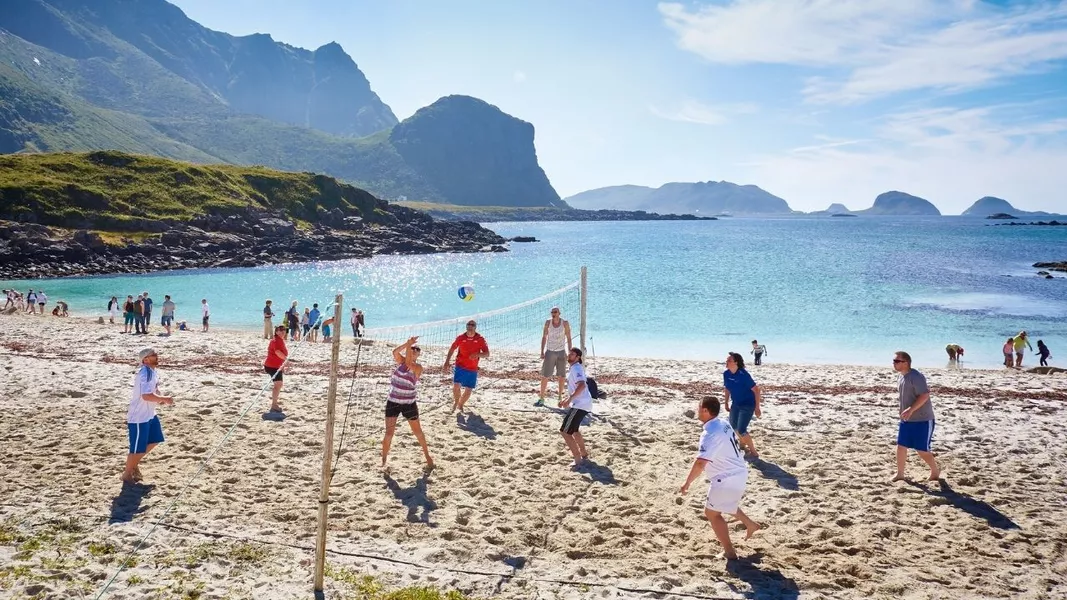If you don’t understand the benefits of recreation and the impact it can have on your life then you really need to pay attention because this can change your life. Some people may be wondering what is so special about recreation to warrant all the awareness and attention that it gets especially in efforts to get people to participate more in such activities.
Well, you need to understand that recreation has so many benefits that have been proven and validated by scientific research which demonstrates the benefits of recreation and leisure. These benefits can be applied in different areas of life irrespective of the recreational activities you do since your health encompasses your physical, emotional, mental, social, and spiritual wellbeing.
Some of these benefits have been described below with evidence from scientific research that validates these benefits. You will be surprised how recreation can change your life and help you to live more healthily irrespective of your socio-economic status. Some of these benefits include:
Personal Health Benefits of Recreation
1. Increased Life Expectancy
A scientific research study demonstrated that recreation is important to increased life expectancy. The study was done with older women with an average age of 79 years and the results showed that women who exercised or carried out a low amount of physical activity were more likely to live longer than those who did not do any physical activity by as much as eight years.
Also, another study showed that people with heart disease conditions who exercised are less likely to die early when compared with those who did not exercise. Hence, it is important to take recreation seriously and inculcate some form of physical activity in your daily schedules.
2. Improved Heart Health
Having a good functional and healthy heart is another unique benefit of recreation that can be achieved by engaging in recreational activities with reasonable physical exercises. This research study in older adults demonstrated that the risk of heart failure can be reduced by half if you adhere to a modest physical activity and keep yourself from getting too fat (obese) and avoid smoking.
There are several recreational activities that can enable you to achieve this even if you are older. All you need to do is to find something to make you active and discontinue any habits that may be detrimental to your health.
3. Prevents Bone Disease
This may be more intuitive than others. Researchers found out that teenagers who are less active tend to have weaker bones. This may even have long term consequences in their adult life since some of the issues most older adults deal with can be traced back over the course of their life.
It is important to engage in some physical activity especially when you are still developing as a child or teenager since this is the best opportunity to correct some of these defects that may become a problem later in life. There are so many recreational activities that children and young people can participate in especially during their holidays.
4. Reduces Chronic Diseases – Diabetes
It is no longer news that diabetes is one of the leading chronic diseases in the United States affecting more than one hundred million (100 million) people who are either living with the disease or at risk of the disease. A research study has demonstrated that with higher engagement in physical activity is associated with a very low incidence of diabetes.
This may imply that if you are involved in recreational activities with some level of physical activity, you may be less likely to develop diabetes. Also, people who are already diabetic are always encouraged to eat right and engage in physical activities to keep their diabetes under control.
5. Reduces Obesity
Almost everybody understands that obesity is a big concern but many people don’t know the magnitude of the problem in the United States. The Centers for Disease Control (CDC) estimates that almost forty percent (39.8%) of the United States population is obese, which translates to about 93 million people.
A research study showed that among other factors, children who did not have easy access to parks and playgrounds in their neighborhoods are more likely to develop obesity than those who have access to parks and playgrounds in their neighborhoods. Recreational activity is very important in reducing the incidence of obesity and it is a very effective and cost-effective method of combating obesity, especially in children.
Psychological Benefits of Recreation
6. Reduces Stress and Depression
Another benefit of recreation is the impact it has on your mental activity. A scientific study that was done in Sweden showed that light and vigorous exercise had a significant impact on decreasing the severity of depression over a one year period.
Hence it is important for you to engage in recreational activities to boost your mental health status and reduce the risk or impact of depression. This is really important since mental health is also an integral part of your overall well being and any issues with your mental health will eventually affect the other areas of your life.
7. Necessary for Holistic Development of Children
A strong connection has also been established about the importance of recreation and leisure in the development of children. Almost all parents want their kids to grow and develop excellently especially in their academic and cognitive abilities.
However, some people do not understand or take seriously the impact that recreation has on the cognitive development of their children. A study showed that boys who spent more sedentary time with little or no physical activities developed poorer reading skills. Children (as well as adults) should be encouraged to engage in recreational activities in order to help them improve their academic and cognitive abilities.
8. Create Opportunities for Life-Long Learning
Some people may think that engaging in recreational activities will deny you the time you need to work hard and do well academically, especially if you are a student. However, this is not always the case. One study that was done in Spain showed the impact of sports participation on academic performance among undergraduate students.
The results of the study showed that students who engage in sporting activities were associated with higher grades in their academic performance. Other studies have also corroborated similar findings like this which underscore the importance (benefits) of recreational activities.
9. Enhance Emotional Health
Emotional health is a very important aspect of everybody’s wellbeing and people who have disabilities often have a lot of challenges with their emotional health and it takes a lot of determination and courage to overcome these challenges. A research study of veterans with disabilities showed that participation in sports, exercise, and recreation has a positive influence on their self-esteem and quality of life.
This also shows another important benefit of recreation because nothing can be as good as having a very positive attitude about yourself (especially if you are experiencing any form of disability). Most people who do not have disabilities also tend to feel good about themselves whenever they are doing any physical exercises or recreational activity.
Social Benefits of Recreation
10. Reduces Crime
Crime is always a difficult issue that no community wants to be dealing with all the time because of the diverse effects it can have on communities especially economically and socially. One importance of recreation is the ability of recreational activities to reduce engagement in crime among young people.
A review paper on combating youth crime with sports programs showed that young people who are engaged in recreational activities are less likely to engage in crime.
Of course, it is not realistic to think that sports programs alone can prevent young people from engaging in crime; but there is overwhelming evidence that engaging young people (especially those at risk of crime) in recreational activities is an effective way of reducing crime among this population group.
11. Reduces Isolation and Loneliness
One of the early signs of people who may have psychological or mental health issues is isolation, feelings of loneliness which is often accompanied by depression. Feelings of loneliness are often common among immigrant populations, especially those who may find it challenging to integrate into a new society that is significantly different from what they have always known.
An arts program in Silicon Valley, California showed that immigrants who participated in the program (which is a recreational activity) made significant contributions to community building through participatory arts. This helped them to embrace their new community and make contributions to its rich diversity while striving to preserve their cultural identity.
12. Enhances Social Skills
Every society has one or more challenges with various social issues that they are dealing with all the time. One of the benefits of recreation is that it has been demonstrated that recreation can be a viable tool to address some of these social issues effectively.
A literature review of available scientific research and various academic works at Sheffield Hallam University in the U.K showed significant evidence that various forms of recreation can improve the development of social relationship skills like self-esteem, self-efficacy, cooperation, reciprocity, a sense of belonging, etc. It can also build a group’s bonding capital which includes social connectedness, networking, social interaction, etc.
13. Bonds and Keeps Families Together
Another important benefit of recreation is the tendency of families who participate in recreation to bond together. This can be a great solution for families who are experiencing some strain in relationships among family members. Consider embarking on family recreational activities like hiking or camping trips with various activities and see how it can transform your relationship.
There is research evidence that supports this benefit of recreation. Studies have shown that family participation in recreational activities has led to more family satisfaction, family interaction, and family stability. This may be a good solution for any unstable family that you know.
14. Understands Cultural Differences
It is evident that sports and recreational activities bring people of diverse backgrounds and cultures together in harmonious relationships. This is a benefit of recreation that is helpful in bridging the gaps created by cultural differences which often create and breed unnecessary tensions. These interactions are also important in removing cultural barriers that tend to affect relationships.
Research at Stanford University demonstrated how increased contact with different racial and cultural groups can lead to increased interest in the other group’s culture. Recreational activities can be used in reducing these cultural differences that can often lead to contentious relationships, prejudice, bias, etc. in communities.
Environmental Benefits of Recreation
15. Decreases Demand for Social Services and Costs
One of the biggest challenges that many governments at all levels (from local to federal) grapple with all the time is the increased cost of providing social services like healthcare, transportation, etc. This is a huge concern for many governments, especially those with dwindling resources with increased competing priorities.
Yet again, the promotion of recreational activities may be one of the most viable solutions to issues like this. This benefit of recreation is based on the fact that when more people engage in outdoor physical activities like walking, bicycling, sports, etc. it will lead to a more healthy population which can translate into reduced healthcare expenditures.
Also, with more people taking to alternative transport like bicycling there will be less demand for public transportation services which can also translate into cost reductions on public transportation expenditures.
There are many more benefits of recreation besides the few itemized above including the fact that recreation is also important to our environment and the economic wellbeing of our communities.






